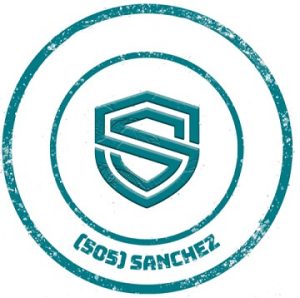
Are you going through the discovery process during a divorce in New Mexico? If so, you may be wondering, “What happens after discovery in a divorce?”
First, divorce discovery is the process of retrieving and requesting necessary financial information.
This essential financial information often includes:
- Bank accounts;
- Pay information;
- Retirement statements;
- Current mortgage statement;
- Vehicle and other asset statements; and
- Necessary debt information.
Often, the discovery process is the most tedious and time-consuming aspect of divorce. Accordingly, divorce discovery can be the most expensive aspect of divorce.
With that said, discovery is often the most important part of divorce.
At times, completing a divorce without discovery is like traveling to an unknown location without a map.
The discovery process varies from one divorce to the next. In this respect, the discovery process has varying levels of difficulty.
On the light side, discovery can be completed with an informal email or request. The light side often occurs in marriages where both sides have a complete financial picture about community assets and debts.
In the middle, formal discovery is necessary. This formal discovery involves a legally enforceable request for financial documents. The formal request also involves financial questions that must be answered under oath.
On the heavy end, multiple rounds of formal discovery may be necessary. Moreover, a deposition – or statement under oath – may be needed.
A heavy discovery process often occurs when one spouse was kept in the dark about community assets and debts. Also, a lengthy discovery process may be necessary when one side is engaging in shady divorce moves.
WHY IS DISCOVERY NECESSARY DURING DIVORCE?
Divorce discovery is like practicing for game day. In most situations, you must practice to win on game day.
Divorce settlement facilitation or trial is like game day. Often you cannot win at divorce settlement facilitation – or divorce trial – without having the necessary financial information.
In some situations, participating in settlement facilitation or trial without completing discovery is like trying to find a destination or object while blindfolded.
WHAT HAPPENS AFTER DISCOVERY IN A DIVORCE?
After discovery in a divorce, both sides usually participate in settlement facilitation (i.e. mediation). In New Mexico, spouses must complete settlement facilitation before a trial is set.
In some situations, after discovery in a divorce is finished, both sides can reach an agreement without settlement facilitation. However, most contested divorces require settlement facilitation.
As mentioned, the discovery process enables both sides to achieve a full picture of the community assets and debts. This clear picture enables both sides to make informed decisions regarding contested issues.
Contested issues often include:
- Alimony/spousal support;
- Dividing community property and debt;
- How to divide a home’s equity;
- Child support; or
- Any other legal issue needed to finalize the divorce.
MOVING YOUR DIVORCE FORWARD – SETTING DEADLINES IN DIVORCE
Divorce isn’t a self-propelling process. In other words, family courts do not push your divorce forward.
Therefore, filing a divorce does not move the case forward to completion. You need a scheduling order to set deadlines and move your divorce forward.
Your divorce case will sit forever – eventually being dismissed – if a scheduling order or hearing is not requested or completed.
A scheduling order set the following deadlines:
- Completing discovery;
- Filing motions; and
- Completing settlement facilitation.
Have you filed for divorce? Is your divorce sitting in a gray area and not moving? If so, you need to file or request a scheduling order.
Is your spouse refusing to set deadlines through a scheduling order? If yes, you need to file a motion for pre-trial scheduling order.
Otherwise, your divorce will sit in a “no man’s land” without movement. After 180 days – or six months – your divorce likely will be dismissed.
Has your divorce been dismissed for lack of movement? If so, you need to file a motion to reopen your divorce.
LIFE AFTER DISCOVERY IN A DIVORCE
Life after discovery in a divorce often involves three potential paths.
On the first path, the parties can reach an amicable agreement. On this path, the financial information enables both sides to meet in the middle. In doing so, any contested issues are resolved.
On the second path, the parties must complete facilitation. On this path, an experienced mediator helps both sides reach a middle ground. The financial information uncovered during discovery helps both sides make an informed decision.
On the third path, settlement facilitation fails. On this path the parties move to a divorce trial. In doing so, both sides put the contested issues into a judge’s hands – for better or worse.
At trial, the uncovered financial information becomes exhibits. These exhibit supports one’s legal argument regarding a contested issue. In turn, the exhibits sway the judge’s decision.
As you can see, divorce discovery is often needed to complete mediation. When mediation fails, discovery is needed for trial.
WHY IS DIVORCE DISCOVERY SO EXPENSIVE?
The discovery process is often the most expensive aspect of divorce. With that said, there are ways to reduce the overall expense.
First, quickly provide all requested financial information. The discovery expense increases when you fail to provide requested information. In this situation, your paralegal or lawyer may need to send multiple emails about the needed information.
Be responsive.
Provide all information timely.
Your lawyer needs the requested information to make the strongest arguments possible.
Help your lawyer help you.
Diligently working with your attorney can considerably reduce your discovery expense. Conversely, running from financial requests leads to increased time tracking down the information.
Usually, no one likes completing discovery. With that said, no one likes an unnecessarily high legal bill.
Take matters into your own hands and actively help reduce your discovery expenses.
REALIABLE AND AFFORDABLE DIVORE ATTORNEY NEAR ME
Do you still have questions about what happens after discovery in a divorce? If so, are you looking for a reliable and affordable divorce attorney in Albuquerque, NM? You’ve come to the right place. Matthew Legan Sanchez is a reliable and affordable divorce lawyer in Albuquerque, New Mexico. Call (505) SANCHEZ today.








